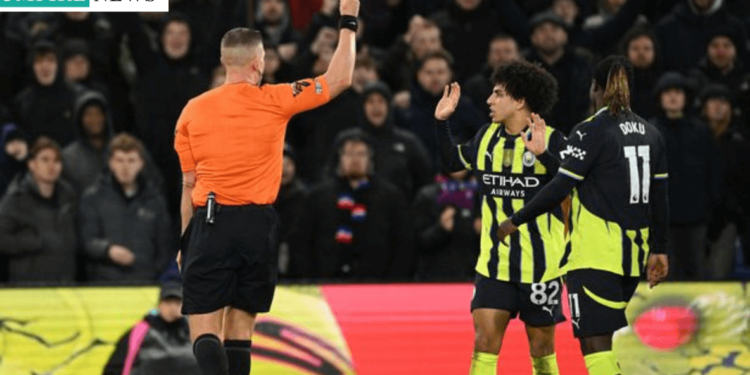Rico Lewis’ red card in Manchester City’s 2-2 draw with Crystal Palace has sparked widespread debate, with many believing the decision was harsh. The young defender received two yellow cards in quick succession, one for dissent and the second for a challenge on Trevoh Chalobah. While the foul appeared to be a late challenge in real time, replays suggested that Lewis’ foot was actually beneath Chalobah’s, raising questions over the fairness of the decision.
Pep Guardiola, speaking after the match, appeared baffled by the sending off, repeatedly stating that “it is because it is Rico.” His comments seemed to reflect a sense of injustice over the timing and nature of the booking, especially given the circumstances surrounding the first yellow card. The challenge on Chalobah, in particular, seemed less severe upon further inspection, but the referee’s decision was already made, leaving Manchester City to face the prospect of playing the remainder of the match without the suspended player.
Dermot Gallagher, a former Premier League referee, weighed in on the incident, acknowledging that the decision seemed harsh when viewed up close. He noted that the tackle did not actually connect with Chalobah, but instead, it appeared that the Palace player had made contact with Lewis. Gallagher also explained that VAR was unable to intervene in such situations, as second yellow cards cannot be reviewed. This limitation in the VAR system is a key issue that many have highlighted, including former players.
Stephen Warnock, a former Premier League player, criticized the current VAR rules, stating that this was a prime example of a situation where the technology could have been used to correct a clear mistake. He argued that the current system fails to support referees in such crucial moments, leaving teams to suffer due to an avoidable error. Warnock’s call for change emphasized the significant impact such decisions can have on a game, particularly when they result in unfair suspensions for players.





































